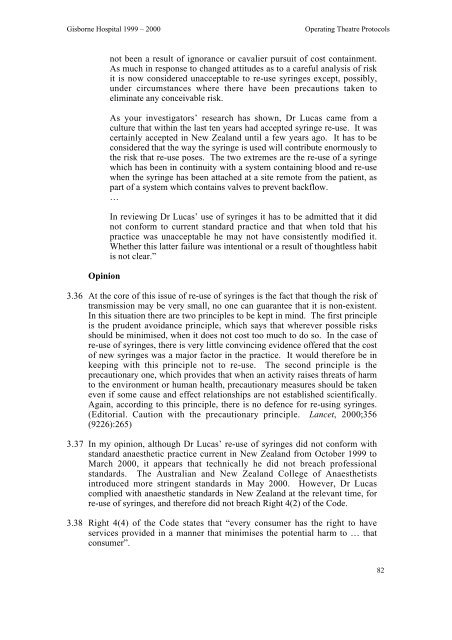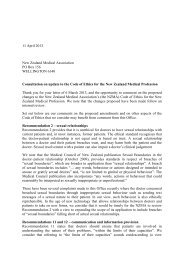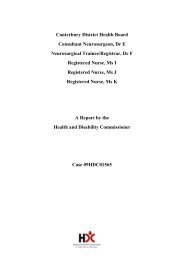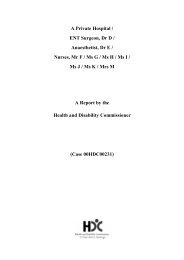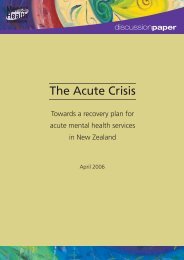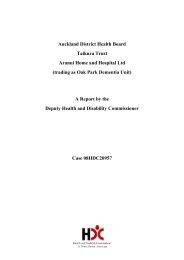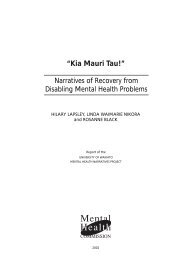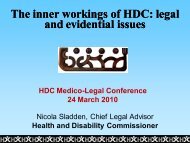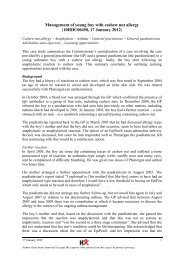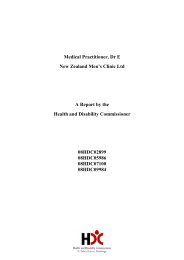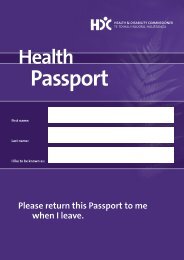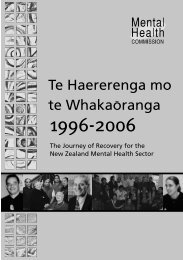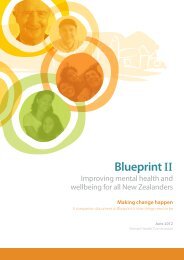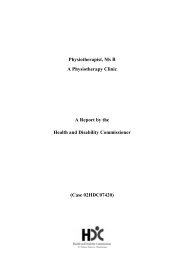Gisborne Hospital Report - Health and Disability Commissioner
Gisborne Hospital Report - Health and Disability Commissioner
Gisborne Hospital Report - Health and Disability Commissioner
Create successful ePaper yourself
Turn your PDF publications into a flip-book with our unique Google optimized e-Paper software.
<strong>Gisborne</strong> <strong>Hospital</strong> 1999 – 2000<br />
Operating Theatre Protocols<br />
Opinion<br />
not been a result of ignorance or cavalier pursuit of cost containment.<br />
As much in response to changed attitudes as to a careful analysis of risk<br />
it is now considered unacceptable to re-use syringes except, possibly,<br />
under circumstances where there have been precautions taken to<br />
eliminate any conceivable risk.<br />
As your investigators’ research has shown, Dr Lucas came from a<br />
culture that within the last ten years had accepted syringe re-use. It was<br />
certainly accepted in New Zeal<strong>and</strong> until a few years ago. It has to be<br />
considered that the way the syringe is used will contribute enormously to<br />
the risk that re-use poses. The two extremes are the re-use of a syringe<br />
which has been in continuity with a system containing blood <strong>and</strong> re-use<br />
when the syringe has been attached at a site remote from the patient, as<br />
part of a system which contains valves to prevent backflow.<br />
…<br />
In reviewing Dr Lucas’ use of syringes it has to be admitted that it did<br />
not conform to current st<strong>and</strong>ard practice <strong>and</strong> that when told that his<br />
practice was unacceptable he may not have consistently modified it.<br />
Whether this latter failure was intentional or a result of thoughtless habit<br />
is not clear.”<br />
3.36 At the core of this issue of re-use of syringes is the fact that though the risk of<br />
transmission may be very small, no one can guarantee that it is non-existent.<br />
In this situation there are two principles to be kept in mind. The first principle<br />
is the prudent avoidance principle, which says that wherever possible risks<br />
should be minimised, when it does not cost too much to do so. In the case of<br />
re-use of syringes, there is very little convincing evidence offered that the cost<br />
of new syringes was a major factor in the practice. It would therefore be in<br />
keeping with this principle not to re-use. The second principle is the<br />
precautionary one, which provides that when an activity raises threats of harm<br />
to the environment or human health, precautionary measures should be taken<br />
even if some cause <strong>and</strong> effect relationships are not established scientifically.<br />
Again, according to this principle, there is no defence for re-using syringes.<br />
(Editorial. Caution with the precautionary principle. Lancet, 2000;356<br />
(9226):265)<br />
3.37 In my opinion, although Dr Lucas’ re-use of syringes did not conform with<br />
st<strong>and</strong>ard anaesthetic practice current in New Zeal<strong>and</strong> from October 1999 to<br />
March 2000, it appears that technically he did not breach professional<br />
st<strong>and</strong>ards. The Australian <strong>and</strong> New Zeal<strong>and</strong> College of Anaesthetists<br />
introduced more stringent st<strong>and</strong>ards in May 2000. However, Dr Lucas<br />
complied with anaesthetic st<strong>and</strong>ards in New Zeal<strong>and</strong> at the relevant time, for<br />
re-use of syringes, <strong>and</strong> therefore did not breach Right 4(2) of the Code.<br />
3.38 Right 4(4) of the Code states that “every consumer has the right to have<br />
services provided in a manner that minimises the potential harm to … that<br />
consumer”.<br />
82


